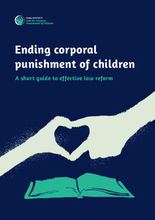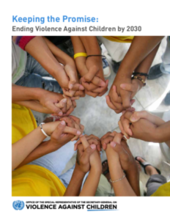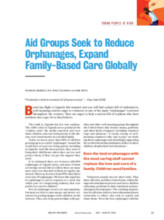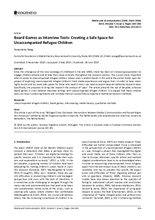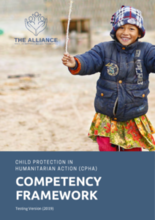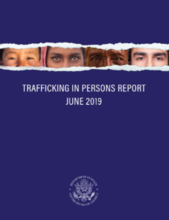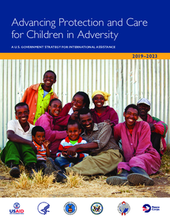Displaying 1851 - 1860 of 4424
With this guide, the Global Initiative to End All Corporal Punishment of Children aims to support governments and civil society working to end violence against children through effective prohibition of corporal punishment.
This report from the Office of the Special Representative of the Secretary-General on Violence against Children outlines the impacts of violence against children and proposes recommendations for safeguarding the right of every child to protection from all forms of violence.
This collection of resources from UNICEF includes a call to action, policy brief, and evidence briefs focused on investing in family-friendly policies in the workplace.
In this piece for Health Progress, the Journal of the Catholic Health Association of the United States, Shannon Senefeld, Philip Goldman and Anne Smith explain why many aid groups are working to end the use of orphanages in favor of family-based care and describe the work of the Changing the Way We Care initiative which seeks to "mobilize other likeminded organizations, raise awareness, promote new policies and encourage well-meaning donors to shift their support away from orphanages and toward families."
This article presents the use of bespoke, artisanal board games in cross-national interview settings with unaccompanied refugee children.
In this opinion piece for The Daily Star, Laila Khondkar - Head of Advocacy and Policy-Child Protection at Save the Children International - explains why donating money to orphanages, though well-intentioned, may cause more harm than good.
The Learning and Development Working Group (LDWG) of the Alliance for Child Protection in Humanitarian Action has revised the 2010 Child Protection in Humanitarian Action Competency Framework to this testing version.
The U.S. State Department Trafficking in Persons Report sheds light on the practices of modern slavery around the world and highlights specific steps governments can take to protect victims of human trafficking, prevent trafficking crimes, and prosecute traffickers in the United States and around the world. The report includes several references to the links between orphanages and trafficking in relation to Nepal, Nigeria, Cambodia, Haiti, Sri Lanka, Moldova, and other countries.
In this blog post for Medium, Sarah Gesiriech, the U.S. Government Special Advisor on Children in Adversity, shares the U.S. Government's whole-of-government commitment to investing in the development, care, dignity, and safety of the world’s most vulnerable children as laid out in Advancing Protection and Care for Children in Adversity: A U.S. Government Strategy for International Assistance (APCCA). "The best investment a country can make to eliminate extreme poverty, boost economic growth, and promote a peaceful society is to invest in its children. When the family unit is strong, all other goals and outcomes for children are well within reach," says Gesiriech.
The goal of the Strategy is to ensure the U.S. Government’s investments for the most-vulnerable children and families around the world are comprehensive, coordinated, and effective in helping place partner countries on a Journey to Self-Reliance by which they can sustainably finance, manage, and deliver services that lead to stable, resilient, and prosperous families and communities.

